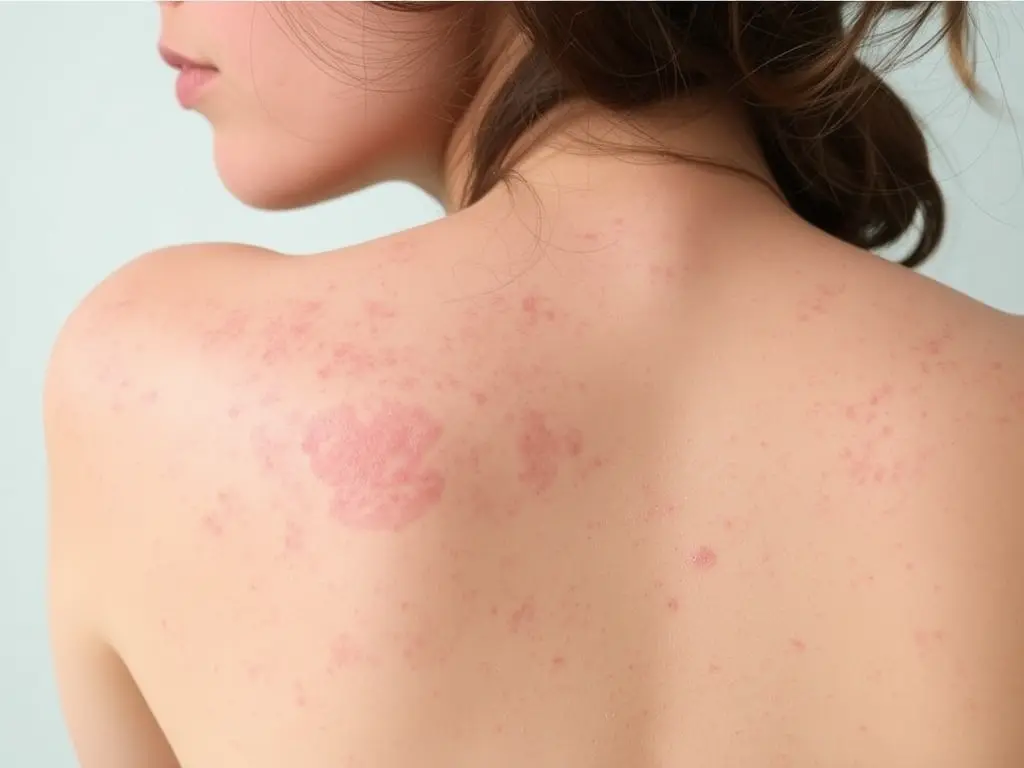As experts in skincare, we understand the concerns surrounding sun exposure and the safety of sun protection products. Misinformation circulating online can be misleading, which is why I aim to provide clear and factual guidance on this vital topic.
The risk of developing skin cancer is significant, with one in five individuals facing this threat before reaching 70 due to excessive sun exposure. This alarming statistic underscores the importance of taking proactive measures to safeguard your skin’s health.
Key Takeaways:
- Skin cancer affects a substantial portion of the population, making sun protection a necessity rather than an option.
- Regulatory bodies like the FDA and EMA rigorously evaluate and approve sunscreen ingredients like oxybenzone, ensuring their safety for public use.
- For those who prefer an alternative, mineral sunscreens containing zinc oxide and titanium dioxide offer an effective physical barrier against UV rays.
- Consistent and diligent application of sunscreen is crucial. Apply a generous amount daily and reapply every two hours for optimal protection, especially when exposed to sun or water.
- Embrace a comprehensive sun safety approach by seeking shade whenever possible and wearing protective clothing like wide-brimmed hats and long sleeves for added defense.
By prioritizing sun protection and following expert recommendations, you can significantly reduce your risk of skin cancer and maintain a healthy, radiant complexion for years to come. Don’t hesitate to consult a dermatologist for personalized guidance tailored to your skin type and lifestyle.
Alarming Sunscreen Misinformation on Social Media
Debunking Dangerous Myths
Dermatologists are actively debunking misinformation spreading rapidly on TikTok and Instagram. These myths falsely claim sunscreen causes cancer or blocks essential vitamin D. I emphasize the importance of sun protection and the safety of Health Canada and FDA-approved sunscreens.
Addressing Influencer Claims
While influencers claim sunscreen chemicals are toxic and absorb through the skin, dermatologists explain these chemicals are necessary for sun protection. They’re thoroughly tested for safety by health agencies. Dermatologists stress the real danger is skin cancer from unprotected UV exposure.
Skin Cancer: A Significant and Preventable Risk
A Widespread Concern
Startling statistics from trusted medical sources reveal that one in five people will develop skin cancer before turning 70. This alarming figure underscores the substantial risk posed by excessive sun exposure. Sunburns, darkening of moles or freckles, and the long-term threat of skin cancer are all potential consequences of inadequate protection against the sun’s harmful rays.

Trusted Sunscreen Options and Expert Recommendations
Health Agency-Approved Sunscreens
Oxybenzone and other filters in sunscreens receive approval from regulatory bodies like Health Canada and the FDA, guaranteeing their safety and efficacy. For individuals worried about specific filters, mineral-based alternatives containing zinc and titanium are available. These mineral sunscreens provide effective protection without concerns over chemical filters.
Dermatologist-Recommended Mineral Sunscreens
Dermatologists frequently suggest mineral-based sunscreens to their patients. These sunscreens utilize zinc and titanium as active ingredients, offering reliable sun protection. I recommend mineral options for those seeking an effective sunscreen without the potential issues linked to chemical filters.
Daily Sunscreen Application: A Must for Optimal Protection
Defeating the “Sunscreen Social Media Myth”
Dermatologists can’t stress this enough: applying sunscreen daily is a no-brainer for sun protection. A common mistake is insufficient or infrequent reapplication. I advise reapplying sunscreen every two hours or right after swimming or sweating.
Complementary Sun Safety Measures
Besides diligent sunscreen use, avoid the sun during peak hours from noon to 3 p.m., seek shade, and wear SPF clothing and breathable hats. These additional methods ensure comprehensive protection.
Dermatologists’ Efforts to Educate and Raise Awareness
Combating Misinformation and Promoting Sun Protection
Dermatologists like Dr. Sunil Kalia and Amy Huber actively combat misinformation and emphasize the importance of sun protection. They caution against abandoning sunscreen based on social media trends. Instead, they educate patients about the risks of skin cancer and the proven benefits of using sunscreen. Their efforts include:
- Addressing concerns about sunscreen ingredients and dispelling myths.
- Highlighting the increasing rates of skin cancer and the role of sun exposure.
- Providing guidance on selecting and applying sunscreen effectively.
Sources:
“Dermatologist debunks sunscreen social media myth” – YouTube
“Dermatologist dispels dangerous myths about sunscreen” – The Current
“Debunking social media sunscreen myth” – WRAL.com
“Dermatologist debunks sunscreen social media myth” – WRAL.com

“Book your appointment today and meet your private dermatologist Prof. Dr. med. Kirsten Böhm in Berlin? ”
(click on image)
As a dermatologist, I firmly believe in the importance of dispelling the myth that sunscreen is unnecessary or harmful. This misconception, perpetuated on social media, undermines crucial efforts to protect skin health and prevent skin cancer. Sunscreen plays a vital role in shielding our skin from the sun’s harmful UV rays, which are a well-documented risk factor for various skin cancers, including the dangerous malignant melanoma.
Malignant melanoma, known as black skin cancer, is one of the most aggressive human tumors due to its rapid spread through the lymphatic and blood systems. Regular sunburns, especially during childhood, significantly increase the risk of developing this form of cancer. That’s why I strongly advise regular skin cancer screenings and protective measures like using broad-spectrum sunscreen with a high SPF.
Additionally, cumulative UV exposure contributes to the development of actinic keratoses and basal cell carcinomas, which are precursors to serious skin cancers if left unchecked. Actinic keratoses, those rough, scaly patches often found on sun-exposed areas like the head and hands, serve as a stark reminder of the necessity for vigilant sun protection.
At my practice in Berlin, we’re at the forefront of providing comprehensive skin checks, leveraging advanced technology like ten-fold magnification under polarized light and digital video tracking to monitor changes in moles that could indicate early signs of cancer. Early detection is key, and I offer appointments that can be scheduled directly through my practice’s contact page.
But the benefits of sun protection extend beyond cancer prevention. Using sunscreen also helps reduce age spots, pigmentation disorders, and maintains a youthful skin texture. Treated skin remains less prone to cosmetic blemishes like impure or flaky skin, age spots, and post-inflammatory hyperpigmentation.
By addressing these myths head-on, I’m determined to safeguard skin health and promote long-term wellness through education and practical advice. Don’t let misconceptions about sunscreen put your skin at risk – prioritize protection and schedule a skin check today.
Text für Post: LINKEDIN
New study highlights the urgency of sun protection as one in five individuals develop skin cancer before age 70. Sunscreen ingredients undergo rigorous evaluation by regulatory bodies like FDA and Health Canada, ensuring safety for public use despite misinformation on social media.
Text für Post: FACEBOOK
🌞 1 in 5 people develop skin cancer before 70 due to sun exposure. Dermatologists debunk misinformation on social media claiming sunscreens cause cancer or block vitamin D – ingredients like oxybenzone are rigorously approved by FDA and Health Canada for public safety.
Text für Post: INSTAGRAM
⚠️ 1 in 5 individuals develop skin cancer before 70 due to sun exposure. Sunscreen ingredients like oxybenzone are thoroughly evaluated and approved by regulatory bodies for public safety. 🌞 Consistent sunscreen application and protective clothing are essential for optimal defense against UV rays.
Text für Post: X/TWITTER
Skin cancer risk alarming: 1 in 5 affected before 70 🚨 Sunscreens approved by FDA/Health Canada safe & crucial for prevention 🧴☀️ Dermatologists debunk social media myths; consistent sunscreen use, protective clothing & shade key for comprehensive sun safety 👨⚕️🕶️


